Yes, solar power is an environmentally friendly option, especially when compared to fossil fuels. While solar panels produce zero emissions during use, it's essential to consider their entire lifecycle to understand the solar power environmental impact. You need to understand everything from the land they occupy to the materials they're made of and how they're disposed of.
Jackery Solar Generators are essential home backup solutions that feature LiFePO4 or NMC batteries that can last over 10 years. These home battery backups can power most household appliances, such as refrigerators and lights, reducing reliance on the electricity grid and lowering the monthly bills.
Keep reading to learn more about solar power's environmental impact from data gathered from the Energy Information Administration (EIA), the National Renewable Energy Laboratory (NREL), and the U.S. Department of Energy (DOE).
In this article, you'll learn:
- Solar power is a more environmentally friendly alternative to fossil fuels.
- Compared to fossil fuels, solar power generates less waste and requires less land and water.
- Jackery Solar Generators are eco-friendly power solutions that can run essential household appliances, including refrigerators, lights, and TVs.
- How does the solar power environmental impact compare to gas generators.
- How solar batteries reduce environmental impact.
Is Solar Power Environmentally Friendly
Yes, solar energy is a clean and environmentally friendly source of energy. Unlike fossil fuels, solar panels produce zero emissions (as per the EIA). That means solar panels produce clean energy without polluting the air like fossil fuels. Beyond daily operations, the long-term impact is also promising.
A study by the National Renewable Energy Laboratory (NREL) shows that solar PV systems emit ~50 g CO₂e/kWh over their life cycle compared to ~1000 g CO₂e/kWh for coal. According to the same study by the National Renewable Energy Laboratory (NREL), life-cycle emissions can be divided into three stages, with opportunities available to lower the carbon footprint of solar panels:
- Upstream processes
- Operational processes
- Downstream processes

Solar panels are also efficient from a manufacturing standpoint. Most solar panels (PV systems) produce the energy used to manufacture them within 1-4 years and then continue to operate emission-free for up to 30 years or even more. In fact, a solar energy fact-check report by the Queensland Government revealed that 95% of the materials used in a solar panel can be recycled, making them more eco-friendly.
What is the Land, Water, and Waste Impact of Solar Power?
There is no doubt that solar panels have a smaller impact on the environment than energy generated from fossil fuels. Here, we will focus on the environmental impact of solar power versus fossil fuels, specifically in terms of land use, water usage, and waste management.
Land Impact of Solar Power vs Fossil Fuels
According to a 2021 report from the National Renewable Energy Laboratory (NREL), utility-scale solar photovoltaic (PV) systems require approximately 3.5 to 10 acres per megawatt (MW) for fixed-tilt installations.
This may seem a lot, but in reality, solar and wind installations directly occupy ≤7% of the total land area in all US states and less than 1% in ~94% of them under projected 2035 clean energy scenarios.
On the other hand, fossil fuel extraction, such as coal mining, fracking, and oil drilling, can lead to long-term landscape degradation and deforestation, with limited opportunities for land reuse and regeneration.
Water Impact of Solar Power vs Fossil Fuels
The environmental benefits of solar power extend beyond carbon reduction, as it also helps conserve water resources and reduces dependence on non-renewable energy. Unlike fossil fuels, solar power can free up massive amounts of fresh water.
According to the SEIA report, solar power plants, including concentrating solar power (CSP) and photovoltaic systems (PV), use less water than required for traditional fossil fuel generation. The water efficiency of solar power makes it ideal for arid and drought-prone states, where water scarcity is already a growing concern.
Waste Impact of Solar Power vs Fossil Fuels
Solar panels are designed with recycling in mind. Over 85% of solar photovoltaic (PV) modules are made with recyclable materials, such as aluminum and glass, according to the US Solar Energy Technology Office. It reduces the waste produced by solar panels compared to fossil fuels.
One of the major environmental advantages of solar power is its ability to generate clean energy without releasing harmful pollutants into the air or water. On the other hand, fossil fuel systems generate non-recyclable waste like ash, sludge, and radioactive byproducts from certain extraction methods, many of which are hazardous and long-lived.
How Does the Solar Power Environmental Impact Compare to Gas Generators?
Solar power has far fewer environmental and health impacts than gas generators. In fact, data from the Solar Energy Technologies Office shows that meeting US solar targets could cut power-sector greenhouse gas emissions by 10% from 2015 to 2050. It will reduce major reductions in harmful pollutants, such as sulfur dioxide and nitrogen oxides, helping you save around $238-$252 billion and prevent 25,000 to 59,000 pollution-related deaths. Let’s compare solar vs gas generators on different factors:
|
Factor |
Gas Generator |
Solar Generator |
|
CO₂ per kWh |
Natural Gas: 0.96 pounds per kWh Coal: 2.31 pounds per kWh |
Zero |
|
Noise (dB at 20 ft) |
Over 70dB |
Under 30dB (as quiet as a library) |
|
Annual Fuel Requirement |
Coal: 1.14 pounds/kWh Natural Gas: 7.42 cubic feet/kWh |
None (Works on solar energy) |
|
VOC/CO Pollution |
Yes |
None |
How Environmentally Friendly Are Solar Batteries?
Solar power's environmental impact is significantly lower than that of fossil fuels, with minimal emissions, reduced water use, and a smaller ecological footprint during its lifecycle. The environmental impact of solar batteries depends on the battery chemistry, manufacturing process, recyclability, and lifespan.
- Lithium-ion Batteries: LiFePO4 is among the most popular for solar storage due to its longer lifespan, thermal stability, and relatively lower environmental impact. They contain no cobalt or nickel, which reduces environmental concerns tied to mining.
- Lead-Acid Batteries: Lead batteries, although widely used and highly recyclable (up to 99% of lead can be reused), are more hazardous due to the presence of toxic lead and shorter lifespans. Over time, they also require more frequent replacement, generating more waste.
- Nickel-based Batteries: These batteries, such as nickel-cadmium, have a high environmental impact due to cadmium's toxicity, and their use has declined for that reason.
|
Battery Type |
CO₂ Emissions/kg |
Recyclability % |
Average Lifespan (Cycles) |
Toxicity Risk |
|
Lead-Acid |
102 kg CO2e/kWh |
99% |
200-500 cycles |
High |
|
LiFePO4 |
90-160 kg CO2e/kWh |
50-90% |
2000-4000 cycles |
Low |
Jackery Portable Power Stations feature LiFePO4 or NMC batteries that can last for a long time and provide stable electricity to appliances whenever required. These batteries can be recycled, thereby reducing their environmental impact.
Jackery Solar Generators for Eco-friendly Power Solutions
Jackery is a leading manufacturer of solar generators, solar panels, and portable power stations for homeowners, off-grid enthusiasts, and outdoor lovers. The solar generators work by using free sunlight and do not emit any toxic fumes or gases. These are portable, so you can move them around wherever power is required.
Jackery Solar Generator HomePower 3000
The Jackery Solar Generator HomePower 3000 is an easy home battery backup solution capable of powering essential household appliances, such as refrigerators, lights, TVs, etc. If you live in an area prone to outages, the solar generator can keep your refrigerator running for hours. It can also be connected to the home's electrical panel, allowing essential appliances to start running in under 20 milliseconds in the event of an outage.
Appliances Running Time
- Refrigerator (400W) = 6.2H
- Cooker (500W) = 5.0H
- Coffee Machine (1000W) = 2.6H
- Portable AC (1200W) = 2.1H
- Water Heater (1500W) = 1.7H

Who Should Buy This
If you want a UPS battery backup that can power essential household appliances during an outage, you can consider the Jackery Solar Generator HomePower 3000.
Customer Review
"We have run several things in our home (new wave oven, floor fans, etc) and are trying to determine the run time of the Jackery as well as recharge time with panels. We are enjoying being able to have this generator inside our home and will run a refrigerator as well!" — Charles Schwemley.
Jackery Solar Generator 5000 Plus
If you need an essential home backup solution with a large battery capacity, the Jackery Solar Generator 5000 Plus is an ideal choice. It can power refrigerators, cooking stoves, air conditioners, and water heaters during outages or off-grid living. It's also expandable with the help of add-on battery packs, allowing the capacity to be extended from 5kWh to 60kWh.
Appliances Running Time
- Refrigerator (400W) = 9.5H
- Cooker (500W) = 7.8H
- Coffee Machine (1000W) = 4.1H
- Portable AC (1200W) = 3.4H
- Water Heater (1500W) = 2.8H

Who Should Buy This
If you’re looking for a large-capacity solar generator that can power essential household appliances for days, you can consider investing in the Jackery Solar Generator 5000 Plus.
Customer Review
"I really enjoy the comfort of clean energy. I don't have to put gas and oil in it to operate, plus it's very quiet. I was blessed to get this device at an affordable price. Yes, I recommend this solar and battery-powered generator with high marks." — Wyatt.
How do Refurbished Solar Products Help the Environment?
Reusing solar products saves energy and reduces greenhouse gas emissions associated with manufacturing. Instead of ending up in landfills, refurbished solar products enable the reuse of valuable materials such as silver, silicon, and aluminum. It helps reduce waste and the need for new materials, lowering the environmental footprint of the solar industry.
Jackery makes it simple to go greener by offering certified refurbished power stations and solar panels. These solar generators feature safe LiFePO4 or NMC batteries that can power indoor or outdoor appliances. You can check out the refurbished products from Jackery to invest in affordable, portable power stations and solar panels.
Common Questions About Solar Power Environmental Impact
Is solar power eco-friendly for camping and outdoor setups?
Yes, solar power is considered an eco-friendly solution for camping and outdoor setups. Unlike gas generators, solar generators do not emit any toxic fumes into the air. Hence, you can set up solar panels in campgrounds, RV parks, or any other outdoor setup.
Are refurbished solar panels worth it?
Yes, refurbished solar panels are a worthwhile investment and offer an affordable entry point into solar power. In fact, used solar panels cost around 50-70% less than new solar panels.
How is solar energy beneficial for the environment?
Solar energy does not produce air pollution or greenhouse gases like fossil fuels. The clean and renewable energy source uses only sunlight, which is free, abundant, and doesn't create any carbon emissions.
Are my old solar panels worth anything?
Yes, if your old solar panels are still functional (even if they are at reduced efficiency), you can sell them on the secondary market.
What happens to solar panels after 25 years?
Solar panels don't stop working entirely after 25 years, but their efficiency gradually declines over time. Even if solar panels become less efficient after 25 years, they can be recycled, with some regions having regulations in place to ensure responsible end-of-life management.
Conclusion
Solar power is undeniably one of the cleanest energy options. Solar power's environmental impact is significantly lower than that of fossil fuels, as it is associated with lower emissions, minimal water usage, and recyclable materials. If you're thinking about switching from fossil fuels to eco-friendly solar power solutions, you don't have to start big. Investing in solar generators for your home, RV, or off-grid cabin instead of fuel-powered generators can reduce the toxic emissions in the air. Jackery offers solar generators and power stations built with long-lasting LiFePO4 or NMC batteries, which can last for years.

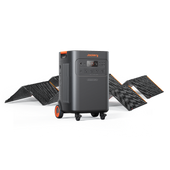











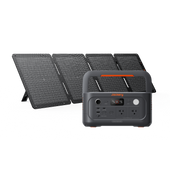



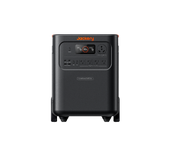
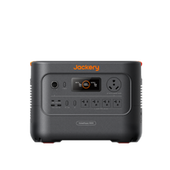





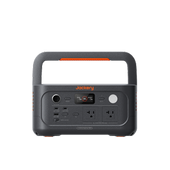





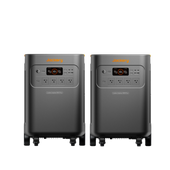
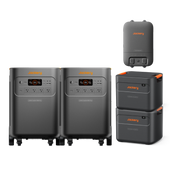





![[Add - on] Jackery Manual Transfer Switch for Explorer 5000 Plus - Jackery](http://www.jackery.com/cdn/shop/files/add-on-jackery-manual-transfer-switch-for-explorer-5000-plus-9017324.png?v=1754016782&width=170)

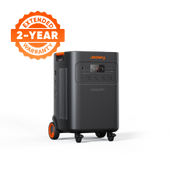
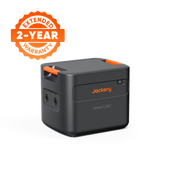







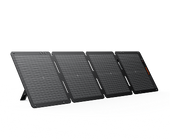




















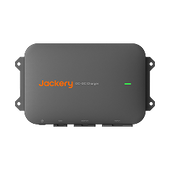




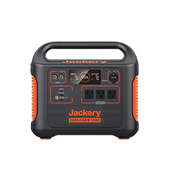






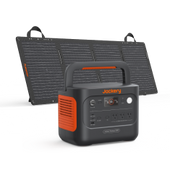
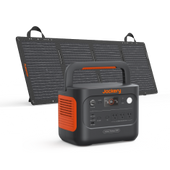






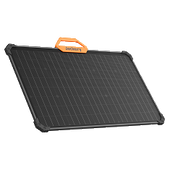







































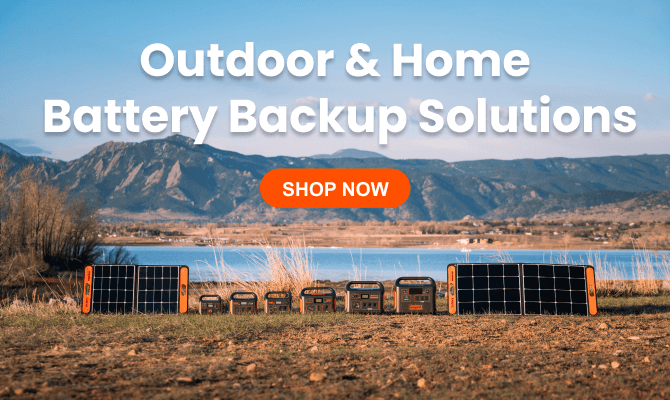



Leave a comment